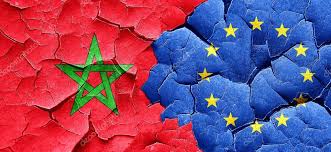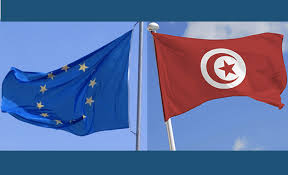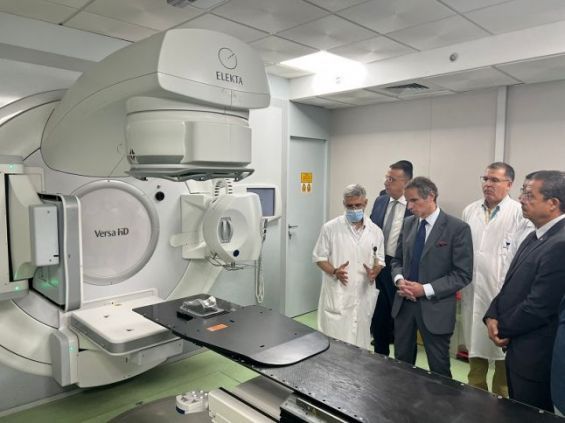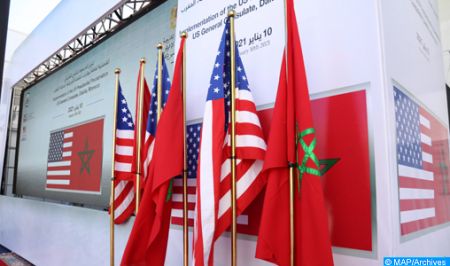 Morocco has always been a locomotive of EU relations with its southern neighborhood, from the very first Association Agreement to being the very first country to benefit from the Advanced Status, foreign minister Nasser Bourita said.
Morocco has always been a locomotive of EU relations with its southern neighborhood, from the very first Association Agreement to being the very first country to benefit from the Advanced Status, foreign minister Nasser Bourita said.
Speaking to EU information website Euractiv, Bourita said relations between the European Union (EU) and Morocco are now part of a ‘Euro-Moroccan partnership for shared prosperity’.
The 14th Association council that took place in Brussels lately demonstrated the depth of relations between the two parties, he said, adding that “the adoption of a joint political declaration was a real milestone.”
“We both agreed on enhancing a new dynamic to our already ‘strategic, multidimensional and privileged relationship’,” he said.
“This implies a paradigm shift, based on equality. The same declaration insists on how important it is to build a partnership of equals to the benefit of the shared interests of both parties,” he added.
The minister stressed however that Morocco seeks co-development, growth and complementarity.
Regarding migration, the minister said the issue should not be dealt with from a “standalone” perspective but rather as “part of a global partnership.”
He recalled the message by King Mohammed VI to the Marrakech Conference that adopted the Global Compact on Migration saying “The side of the border on which a migrant stands does not make him or her more or less human. Addressing security concerns should go hand in hand with socio-economic development policies which tackle the root causes of risky migration.”
“Despite this increased pressure, we have enhanced legal pathways and regularized the situation of more than 50.000 African migrants,” Bourita pointed out.
“Morocco, which has traditionally been considered a country of emigration and transit, is now also a country of immigration. As such, it is quite natural for Morocco to understand the constraints expressed by many of its European neighbors, while at the same time demonstrating authentic solidarity with its African brothers,” he added.
“In practice, cooperation with the EU on migration should have a human dimension that promotes the well-being of migrants. It is a two-way process that establishes rights and obligations for both migrants and host communities. It must lead to a new concept of mobility, which is part of the relaunch of relations between Morocco and the EU,” he said.
The African Migration Observatory established at the initiative of King Mohammed VI and endorsed by the African Union can be the subject of close collaboration with the EU, in terms of capacity building for data collection, Bourita underlined.
“In essence, Morocco is a hub and a facilitator for all things European into Africa, but it does not necessarily aspire to being a bridge between both counterparts. It is a de facto situation which is built on the standing and status of Morocco both in and outside of Africa,” the minister pointed out.
Regarding the Moroccan Sahara issue, Bourita said the EU clarified its positions once and for all during the last Association Council.
“It was a historical moment, because for the very first time, we had a common language on the Moroccan Sahara,” he noted.


